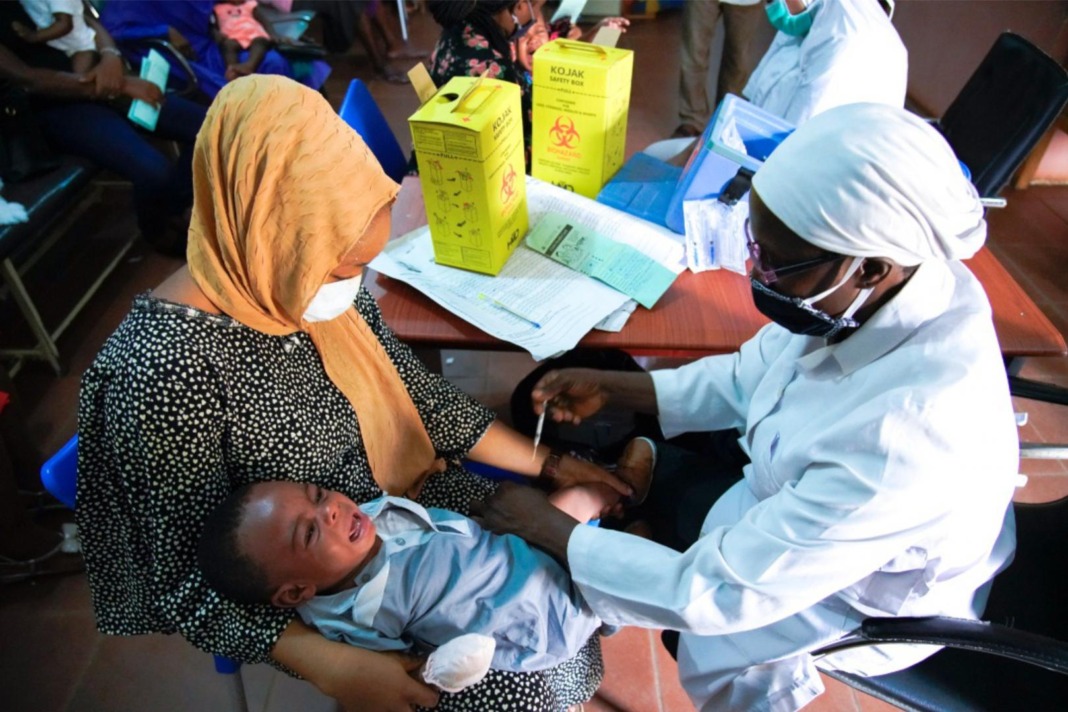The World Health Organisation (WHO) and the National Primary Healthcare Development Agency (NPHCDA) have announced plans to immunize at least 930,000 children every year to cover the children who missed routine immunization as a result of the COVID-19 pandemic.
Dr. Kofi Boateng, WHO Team Lead for Vaccine Preventable Diseases and Polio Eradication, spoke at an engagement between the NPHCDA and states on optimized outreach strategy, stating that the COVID-19 pandemic disrupted routine immunization, leading to around 33 million children in Africa not receiving any single vaccine from 2019 to 2021.
Boateng noted, “The fact that these children had not received any vaccine is the reason we are seeing a lot of outbreaks like measles, diphtheria, yellow fever, and so on. As part of preparation for the African vaccination week celebration, which is riding on the theme ‘The Big Catch Up’, this meeting is to support Nigeria to prepare to catch up to about 6.2 million children that did not receive any vaccine from 2019 to 2021.”
He added that a review of immunization strategies is being done to ensure that health facilities in various states intensify the outreaches in sessions, so that “we can catch up on these numbers of children.” The most effective strategy, Boateng explained, was the need to take the vaccination to the people via fixed sessions, outreach sessions, and mobile sessions for specific groups of populations based on their proximity to the health facility.
Speaking further, he lamented that outreach sessions were not yielding the desired results and pledged WHO’s support to improve the number. “What we have noticed is that, for the outreach sessions that are supposed to go to the communities, you are not seeing the number of yield in terms of the number of children vaccinated over a longer period.”
Dr. Faisal Shuaib, Executive Director of NPHCDA, stressed the need for a paradigm shift to ensure that parents make their children available for immunization and for healthcare workers to optimize every available opportunity to reach children most especially in hard-to-reach communities. He noted that sometimes, parents find it difficult to take their children to health facilities that are very far from them, adding that it would be easier and more effective to take the vaccines to them.
Shuaib said arrangements for special logistics have been made to take routine immunization to hard-to-reach areas, including using boats in riverine areas, motorcycles, bicycles in rocky and desert areas to take vaccines to the children.
Dr. Bassey Okposen, the Director of Disease Control and Immunization, NPHCDA, said, “Most states were not conducting out-reaches the way they should. We therefore drew up optimized strategies on how to make the outreaches better, sharing with them the optimized outreach strategy approach so they can do better. We are also using the opportunity to talk to the states about the HPV vaccine that would be introduced on the 25th of September.”
The WHO and NPHCDA have agreed that every year, they will reduce the burden of zero doses by 15%, with the hope of reducing that dose by that percentage by the end of the year. The WHO has staff in almost every ward supporting polio eradication and other PHC services in all 36 states and will leverage that to support the government to ensure that all plans at those levels are of high quality. The WHO will participate in the training of health workers, monitor the progress of the process, and assess the quality of services as a result of the outreach in terms of data on the actual number of children that are going to be vaccinated.



